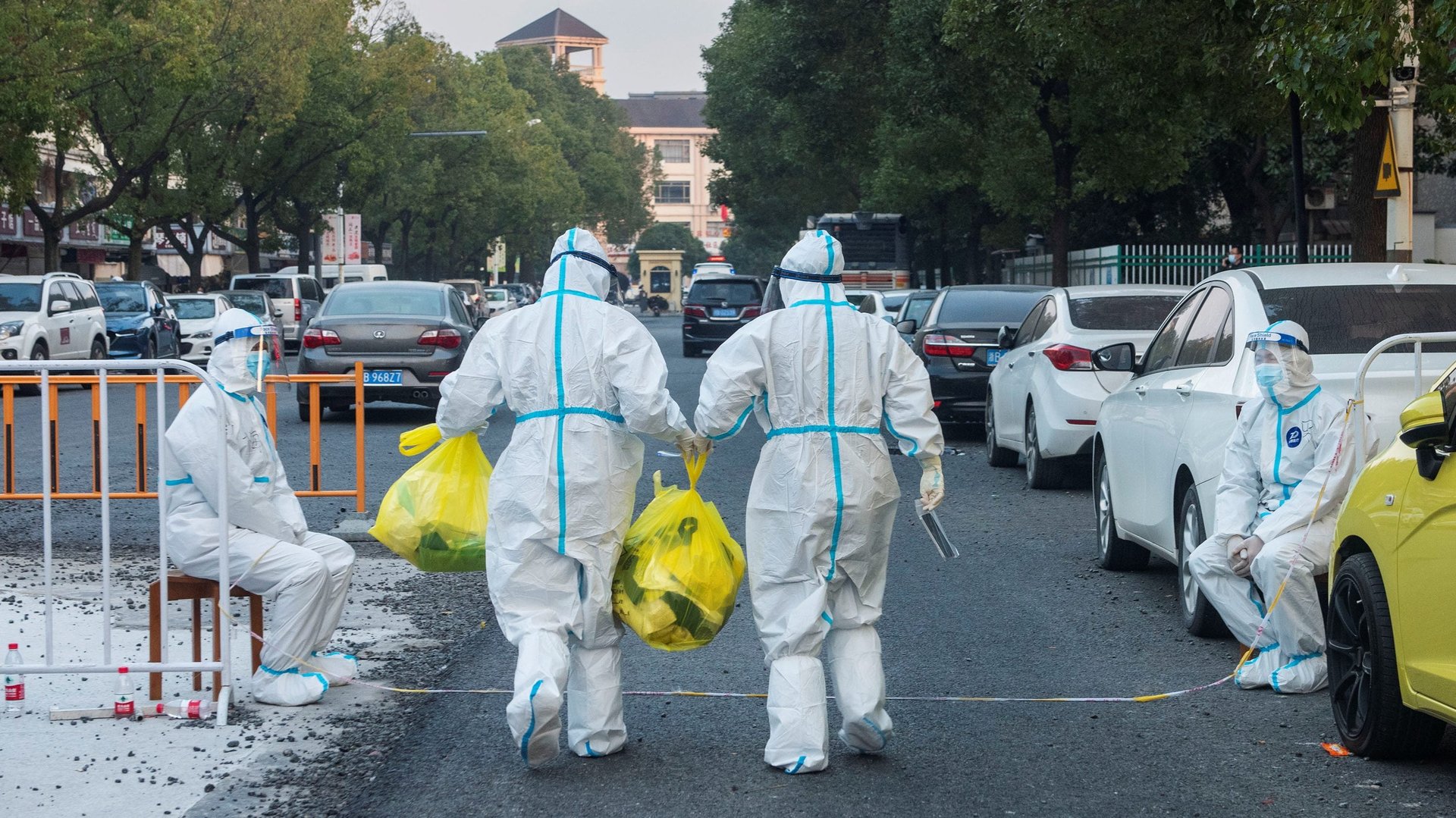China’s latest covid lockdowns are again affecting global supply chains
China’s aggressive pursuit of covid-zero has revved into high gear against omicron, locking down whole cities for weeks, closing factories, and throttling ports, raising concerns that China’s efforts to control omicron’s runaway transmissibility will prolong or worsen manufacturing and shipping delays for the battered global supply chain.


China’s aggressive pursuit of covid-zero has revved into high gear against omicron, locking down whole cities for weeks, closing factories, and throttling ports, raising concerns that China’s efforts to control omicron’s runaway transmissibility will prolong or worsen manufacturing and shipping delays for the battered global supply chain.
Already, companies are seeing production delays. This week, Toyota said that operations had come to a halt at its factory in Tianjin, the Wall Street Journal reported, after the city imposed mandatory testing after detecting two cases of the omicron variant. Volkswagen also closed a plant there as well as in the port city of Ningbo, where a small outbreak occurred, the Journal reported.
Hong Kong-listed Shenzhou International, a supplier for Nike, Adidas, and Uniqlo, said in a disclosure to the stock exchange that it had to suspend operations at several production sites in Ningbo from Jan. 3, and that operations had not fully resumed as of Monday (pdf).
In Xi’an, which has been under a strict lockdown since Dec. 23, and where Samsung has memory chip factories, the company said last month it was forced to “adjust operations,” as workers were unable to go to work due to covid restrictions
Lockdowns in the coastal cities of Ningbo and Tianjin have likewise affected ports. Ningbo limited the movement of trucks in and out of its port, slowing operations for much of December and prompting freight forwarders to divert shipments to different ports. This week, Tianjin, a city near Beijing with the largest port in northern China, began mass testing for its population of 14 million, which required the port to temporarily close.
The southern city of Shenzhen, a manufacturing hub, also began mass testing after a cluster of four covid cases were detected. The city is home to the port of Yantian, one of the world’s largest container ports, whose month-long shutdown due to a positive covid case last May snarled the global supply chain for weeks.
Officials have previously singled out ports as the entry point for covid infection. In December, Xinhua, the state-run news agency, reported that the government would be tightening covid controls at port cities.
China’s increasingly draconian covid-zero policies has resulted in some of the world’s lowest covid infection rates, with a cumulative total of about 104,000 confirmed cases since the start of the pandemic, compared with 61.5 million cases in the US.
According to Freightos, a Hong Kong-based freight booking platform, prices from Asia to the US West Coast, which had seen a dip late last year, have increased 16% from the previous week to $14,572 per container, and 6% from Asia to the US East Coast to $17,476 per container.